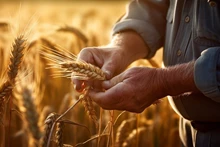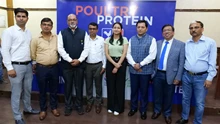
National Technology Day is an annual celebration that recognizes the achievements and contributions of technology to society. Observed every May 11, this day commemorates the successful nuclear test at Pokhran in 1998 and highlights India's advancements in science and technology. It emphasizes the critical role of technology in positioning India as a global leader in innovation and encourages the youth to pursue careers in technology, engineering, and mathematics.
Moreover, it fosters collaboration among academia, industry, and government to address societal challenges with innovative solutions and discuss emerging tech trends. National Technology Day serves as a moment to honor the invaluable contributions of innovators, scientists, and engineers to the nation's growth.
As we celebrate this day in 2024, it is important to acknowledge the critical role technology plays in agriculture sector, particularly in enabling farmers to increase their production and income. With the rapid advancement of technology, farmers have access to a myriad of tools and solutions that can revolutionize their practices and yield significant benefits. This article explores how farmers can harness modern technology in 2024 to optimize their operations, increase efficiency, and ultimately improve their livelihoods.
1. Precision Agriculture: Maximizing Efficiency
Precision agriculture has emerged as a game-changer for modern farming. By leveraging technologies such as GPS, drones, and sensors, farmers can precisely monitor and manage their fields. In 2024, advancements in precision agriculture continue to evolve, offering farmers real-time data on soil moisture, nutrient levels, and crop health. Armed with this information, farmers can make data-driven decisions, optimizing irrigation, fertilization, and pest control efforts. By targeting inputs more precisely, farmers can reduce waste, lower costs, and maximize yields, ultimately boosting their income.
2. Smart Farming: Automation & Connectivity
In the era of smart farming, connectivity, and automation play crucial roles in transforming agricultural practices. Today farmers have access to a plethora of smart devices and systems that streamline operations and improve efficiency. Automated machinery, equipped with sensors and AI capabilities, can perform tasks such as planting, harvesting, and monitoring with unparalleled precision. Moreover, IoT devices enable farmers to remotely monitor and control various aspects of their operations, from irrigation systems to livestock health. By embracing smart farming technologies, farmers can streamline workflows, minimize labor costs, and increase productivity, leading to enhanced profitability.
3. Data Analytics: Harnessing the Power of Big Data
The abundance of data generated in modern agriculture presents both challenges and opportunities for farmers. However, farmers can unlock valuable insights that drive informed decision-making by harnessing the power of big data analytics. Today advanced analytics platforms enable farmers to analyze vast datasets related to weather patterns, market trends, and historical yields. Farmers can anticipate market demands, optimize planting schedules, and mitigate risks associated with weather variability by leveraging predictive analytics. Furthermore, data-driven approaches empower farmers to adopt precision farming practices tailored to their specific needs, thereby, improving efficiency and profitability.
4. Vertical Farming: Cultivating Innovation
Vertical farming represents an innovative approach to agriculture, offering a sustainable solution to meet the growing demand for fresh produce. The technology for vertical farming has advanced, making it more affordable and accessible for farmers to use. Farmers can improve space use and enhance growing conditions by employing hydroponic systems, controlled environments, and vertically stacked layers of crops.
Vertical farms are not only highly efficient in terms of resource usage but also less susceptible to external factors such as climate change and pest infestations. As a result, farmers can achieve higher yields per square foot, shorten supply chains, and cater to local markets, thereby enhancing their income and resilience.
5. Blockchain in Agriculture: Ensuring Transparency & Traceability
Blockchain technology has gained traction in various industries for its ability to provide transparency, traceability, and security. In agriculture, blockchain holds immense potential for transforming supply chain management and ensuring food safety. In 2024, farmers can leverage blockchain platforms to record and track every stage of the agricultural process, from planting to distribution.
Blockchain lowers the risk of fraud and contamination in the supply chain by immutably recording transactions and data. This improves trust and accountability. Consumers increasingly value transparency and traceability in their food products, and blockchain enables farmers to meet these demands while potentially commanding premium prices for their produce.
As we celebrate National Technology Day, it's evident that technology continues to revolutionize the agricultural sector, offering farmers unprecedented opportunities to enhance their income and productivity. From precision agriculture and smart farming to data analytics and vertical farming, the array of technological innovations available to farmers is vast and ever-expanding.
Farmers can maximize yields, reduce hazards, and optimize resource utilization by adopting and integrating these technologies into their operations. Moreover, technology enables farmers to meet the evolving demands of consumers for transparency, sustainability, and quality in agricultural products. As we look to the future, the synergy between agriculture and technology promises to drive sustainable growth, empower farmers, and ensure food security for generations to come.











